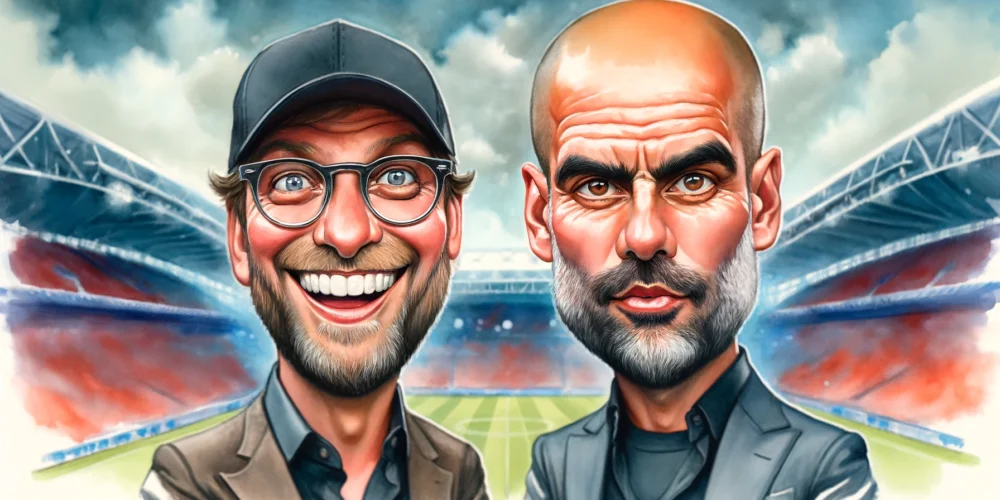Learning from two fascinating football managers

“I will miss him a lot. (He) has been a really important part of my life. He brought me to another level as a manager. I think we respect each other incredibly. He helps me so many times.”
The person who said that was Pep Guardiola, manager of Manchester City Football Club, soon after winning an unprecedented four consecutive English Premier League (EPL) titles. He was not referring to one of his mentors, but to Jürgen Klopp, manager of rival Liverpool FC. Guardiola, not usually known for being sentimental, broke down in tears as he said those words.
He was reacting to Klopp’s own words about him: “He’s the best manager in the world…if you put any other manager in that club, they don’t win the league four times in a row. That’s down to him and his team.”
Well, this is unprecedented. Guardiola and Klopp have been the fiercest of competitors, both in the EPL and the German Bundesliga. Their respective teams have fought tooth and nail on the pitch, and have often gone neck to neck in the race to various titles. And here they were, giving each other very sincere and emotional praise.
The day of Guardiola’s team taking yet another league title was also the day of Klopp’s departure from Liverpool, hence the many goodbyes and acknowledgements. Over the years, Pep has taken the major trophies—a remarkable 33 since 2008/09, well ahead of any other European manager. Klopp has just 10 in comparison, but he has something else altogether—he has the vibes.
This was evident on his departure day, when the entire city of Liverpool seemed to be in tears. The tributes came in thick and fast, not just from fans and players, but rival fans and players. Klopp, with his big heart and big smiles, has an impact in the world that goes beyond just trophies. He gets the people side of human accomplishment. It was reported that Klopp’s departure ceremony received 70% higher UK TV audience, and 44% more YouTube views, that Sunday compared to Manchester City’s title celebrations. Even that other legend from a past era, Sir Alex Ferguson of Manchester United, booked a private dinner with Klopp before his departure—despite the fact that their respective teams have been the most bitter of rivals since I was born.
This requires some reflection, so allow me to share some thoughts about leadership and success.
First, there’s the obvious one. There are many ways to be successful and have impact. The world seems to record material and numerical achievements—titles, trophies, revenues, profits—and hold them in high regard, but that is narrow-minded thinking. You actually find out how successful you are when you leave your position. The number of tearful faces, as well as those who can’t stop smiling because of the regard in which they hold you and the impact you have had on their lives, will also tell a story. That story will be remembered in the retelling and on deathbeds, long after the lucre of material gain has faded.
A second is this: you can be intense adversaries—on sports fields and in industries and markets—and yet have enormous respect and even affection for each other. I see this year after year on the leadership development programme that I founded. Fierce competitors will arrive, compete relentlessly during the programme—and often depart as cherished friends. We don’t have to take professional rivalry to personal arenas. To compete with someone is not to despise them. We can be better than that.
And third, even the best of us are just flawed human beings at the end of the day. Guardiola is manic in his approach to football. His teams must be set up and play in very specific ways, with no quarter given, and to dominate, season after season. They also require enormous funding. This approach has brought him a dazzling tally of trophies—but not the love of his people. He is a winner, and driven to win, and that’s great—but it’s not everything.
Klopp, on the other hand, seems to love the journey more than the destination. He is content to operate on modest budgets, and often ends up second-best—painfully, narrowly, so. His teams’ fans have to reckon with crazy rides: top of the pile one season, barely even competing the next. The emotional, chaotic football of Klopp teams is not consistent, nor is it a sustainable approach. Fans are left with relatively few trophies in the cabinet when the boss is gone, but very memorable days, full of legendary comebacks that become the stuff of lore, probably for generations.
Both types of leadership are valid; both have their place in our world. We should perhaps stop yearning for perfectly balanced leaders, for such a creature has probably never existed. Every leader shows up with a couple of standout traits, as well as some weaknesses. The best know this about themselves, and don’t try to become that which they are not.
I suspect Guardiola and Klopp will meet again, perhaps in the World Cup, perhaps as managers of Spain and Germany respectively. You read it here first…
(Sunday Nation, 2 June 2024)

Buy Sunny Bindra's new book
The X in CX
here »
Popular Posts
- Where are you rushing to—your funeral?June 29, 2025
- How to spot a real thinkerJune 15, 2025
- The pause that saves usJune 8, 2025
- Built the app, forgot the flowJune 22, 2025
- The map will appear—once you start walking.July 6, 2025















